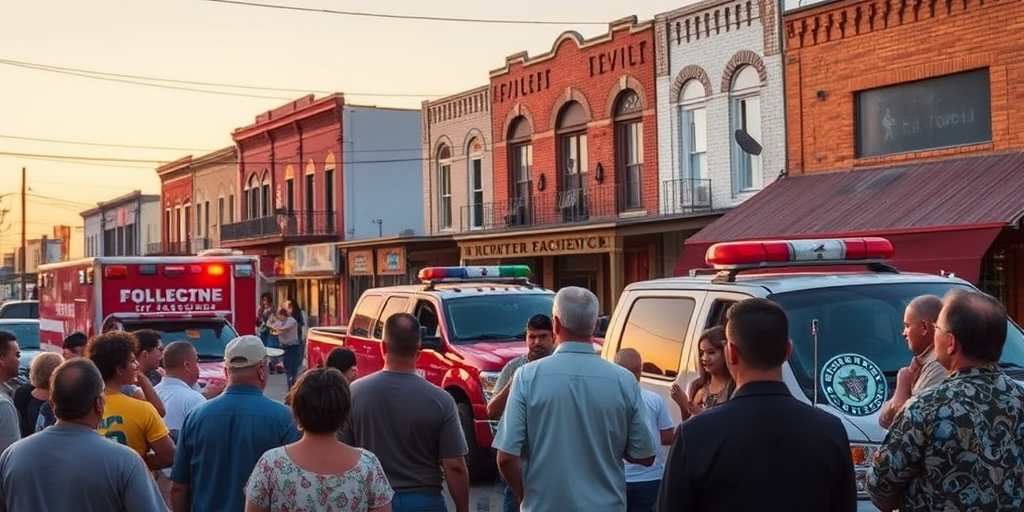**Harlingen Man Sentenced to 14 Years for Drug Possession: A Community Perspective**
Miguel Flores, a resident of Harlingen, Texas, has been sentenced to 14 years in prison following a significant drug-related arrest that involved crack cocaine, Tramadol, and THC among other substances. This case has raised various concerns among the Rio Grande Valley (RGV) community regarding drug use and crime in the region. As reported by ValleyCentral.com, the arrest and subsequent sentencing have prompted discussions on local safety and strategies to combat drug-related offenses.
Details of the Arrest and Sentencing
In March 2024, the Harlingen Police Department’s Organized Crime Unit executed a narcotics search warrant on the 600 block of East Monroe Avenue. The search led to the discovery of substantial quantities of drugs, including 49.47 grams of crack cocaine, 80 grams of Tramadol, 41 grams of cocaine, 23 grams of Hydrocodone, 21 grams of Alprazolam, 6 grams of Lorazepam, 15 grams of THC, and 2.31 ounces of marijuana. Flores was arrested and charged with multiple felony offenses, culminating in a 14-year prison sentence in the Texas Department of Criminal Justice.
Harlingen Police Chief Oscar Martinez commented on the arrest, stating, “This operation was a significant success for our Organized Crime Unit. It highlights our ongoing commitment to protecting our community from the dangers of drug-related crime.”
Community Impact and Concerns
The news of Flores’s sentencing has had a noticeable impact on the RGV community, intensifying concerns about the prevalence of drugs and crime in South Texas. Residents are grappling with the implications of such criminal activities, which have been somewhat recurrent in the region. The community’s trust in local law enforcement and their efforts to tackle crime are focal points of current discussions.
Local resident and community activist Ana Lopez expressed her views, “While we’re grateful for the police department’s efforts, this should also be a wake-up call for more comprehensive approaches to dealing with drug addiction and prevention. Simply arresting individuals isn’t enough to solve the root cause of these issues.”
Relating to Broader Issues
The Rio Grande Valley, like many border regions, faces unique challenges in combating drug trafficking and related crimes. The geography and demographics of the area make it a focal point for drug cartels and smuggling operations. Such incidents underscore persistent issues that require broader socio-political interventions, including border security and community-based support systems.
Past initiatives, like community policing and drug prevention programs, have yielded mixed results, pointing to the need for multi-faceted approaches. The Flores case is not an isolated event but rather a manifestation of a larger, more systemic challenge that demands coordinated efforts across various sectors of society and governance.
Future Implications for the Rio Grande Valley
Moving forward, the outcomes of this case may influence future policing and community strategies in the RGV. Increased collaboration between law enforcement agencies, healthcare providers, and educational institutions could be a notable trend, focusing on preventive education and mental health support to decrease dependency and crime.
City officials, along with non-profit organizations, are encouraged to continue holding dialogues and forums to address safety and health concerns, ensuring voices of Valley residents are heard in policy-making processes. Such inclusion could foster trust and community resilience, ultimately reducing the occurrences of criminal activities.
Balanced Perspectives
While the rigorous sentencing may deter future offenses, it also raises questions about proportionality and the management of non-violent drug crimes. According to Alice Thompson, a criminal justice expert from the University of Texas, “There’s a delicate balance between enforcing the law and enacting rehabilitative justice. Long sentences may not always be the most effective solution, especially for non-violent offenders.”
Alternative sentencing programs, such as drug courts and rehabilitation initiatives, have been suggested as complementary measures to traditional punitive approaches, potentially leading to better societal reintegration and reduced recidivism rates.
Local Resources and Support
For residents seeking assistance or more information on combating drug-related issues, several local resources are available. The RGV offers counseling and addiction treatment programs designed to aid those affected by substance abuse. Additionally, community organizations host events and educational sessions to foster engagement and awareness.
The ValleyCentral website and their app provide real-time updates and community resources for individuals interested in participating in local safety initiatives or learning more about ongoing efforts to address drug-related challenges in the region.
Through collaboration and community-driven efforts, the RGV can continue developing strategies to ensure the safety and well-being of all its residents, acknowledging the complex dynamics that contribute to drug-related crimes. As Miguel Flores begins his sentence, the community reflects on how to better foster peace and resilience amid ongoing challenges.







